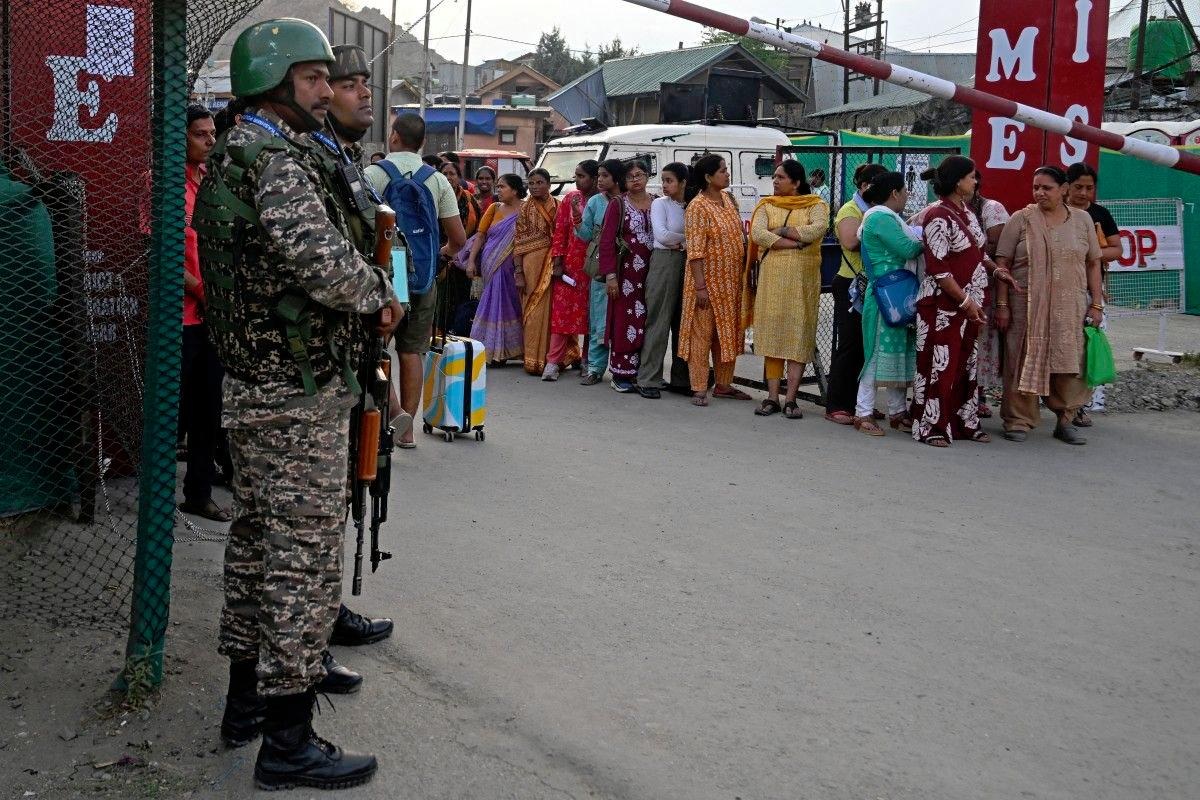In Indian-administered Kashmir, thousands of Hindu devotees have commenced the annual Amarnath Yatra, a month-long religious pilgrimage through the Muslim-majority region.
This year’s pilgrimage unfolds under heightened security and lingering fears, following a deadly attack in April that nearly pushed India and Pakistan into a full-scale war.
The pilgrimage leads worshippers to a sacred ice formation representing the Hindu god Shiva, located in a high-altitude cave deep in the Himalayan hills above the town of Pahalgam.
In 2023, more than 500,000 people participated in the journey.
But this year, emotions are especially tense after gunmen killed 26 mostly Hindu tourists near the pilgrimage route on April 22.
India accused Pakistan of supporting the attackers, an allegation Islamabad strongly denied.
The fallout escalated quickly.
On May 7, cross-border violence erupted, leading to a four-day conflict between the nuclear-armed neighbors.
Both sides exchanged missile, drone, and artillery fire, resulting in over 70 casualties.
A ceasefire was eventually reached on May 10, but the confrontation marked the worst military standoff since the 1999 Kargil War.
Reporting from Pahalgam, Al Jazeera’s Umar Mehraj noted that pilgrims initially expressed fear, but many now say they feel reassured by the visible and extensive security measures.
“This year’s Yatra is being conducted with unprecedented security,” Mehraj said.
“Around 600 additional paramilitary units have been deployed, making it the most heavily guarded pilgrimage in the event’s history.”
One pilgrim, Muneshwar Das Shashtri from India’s Uttar Pradesh state, told AFP that he felt no fear.
“The army is everywhere. No one can harm us,” he said, reflecting a sentiment echoed by many of the faithful.
To ensure safety, India has stationed 45,000 security personnel along the pilgrimage route.
High-tech surveillance tools, including facial recognition systems, CCTV cameras, and drone patrols, are being used extensively.
Pilgrims are required to register in advance and travel in escorted convoys until they reach the trailhead for the arduous journey to the cave shrine, located at 3,900 meters (12,800 feet) above sea level.
According to VK Birdi, Kashmir’s police chief, “Multi-layered, in-depth security arrangements” are in place to protect pilgrims and maintain order throughout the event.
Along the route, camouflaged military bunkers have been established in the surrounding forests.
Paramilitary posts appear every 100 meters, while dozens of makeshift kitchens serve free meals.
Pilgrims are equipped with electronic radio-frequency cards, which allow authorities to monitor their location in real-time.
Despite the recent violence, many pilgrims remain undeterred.
“Whatever happened here won’t stop me,” said 29-year-old Ujwal Yadav, who is also from Uttar Pradesh and undertaking his first pilgrimage.
“The security is so tight, no one can be harmed.”
Still, officials acknowledge that turnout is slightly lower this year.
According to Manoj Sinha, the government-appointed administrator for Jammu and Kashmir, the number of registered pilgrims is down by about 10 percent. However, he added that “public confidence is returning.”
Originally a quiet ritual attended by only a few thousand local worshippers, the Amarnath Yatra has grown dramatically since the late 1980s.
Following the eruption of a separatist insurgency in 1989, the Indian government has aggressively promoted the event, turning it into a major religious and political statement.
Militant groups opposed to India’s rule in Kashmir have previously stated they do not target pilgrims.
However, they have warned they would respond if the pilgrimage is used to symbolize or enforce Hindu dominance in the region.
The April attackers remain at large, although Indian security forces are continuing their search.
On June 22, India’s National Investigation Agency announced the arrest of two men from Pahalgam who allegedly provided food, shelter, and logistical support to the gunmen.
Authorities have also issued wanted notices for three suspects, including two Pakistani nationals.
The region has seen violence during previous pilgrimages.
In 2017, a similar attack on a bus carrying pilgrims resulted in 11 deaths.
As the 2024 Amarnath Yatra continues through August 9, the journey remains one of faith, resilience, and immense geopolitical tension.
It underscores the delicate balance between devotion and conflict in one of the world’s most volatile regions.



